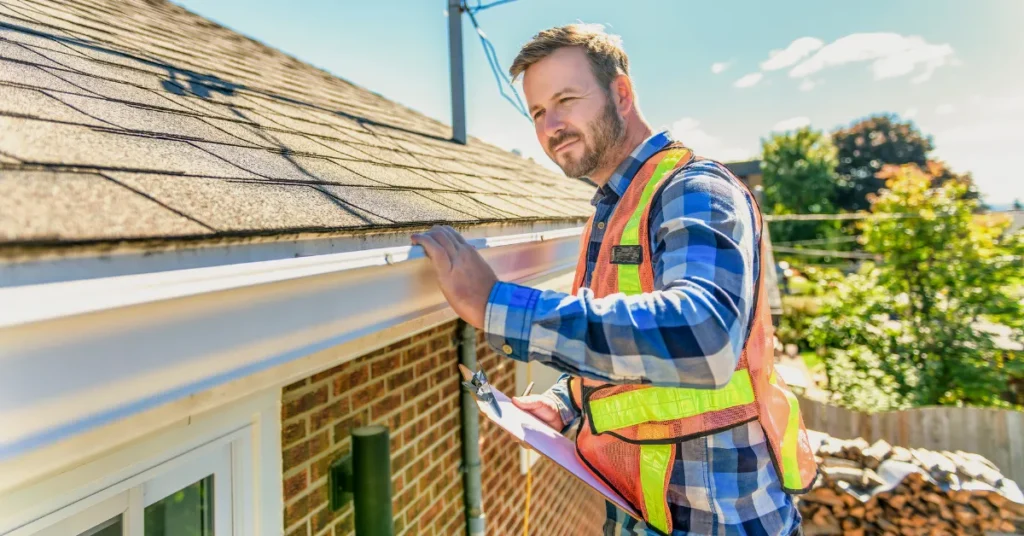Your roof is your home’s first line of defense against the elements. It shields your family from harsh weather, keeps you dry, and maintains the structure’s integrity. Over time, your roof endures wear and tear from the sun, wind, rain, and occasional storms. Regular inspections and proper maintenance can prevent minor issues from turning into costly repairs.
At Coastal Roofing, we specialize in comprehensive roof inspections and offer expert insurance claims assistance. Whether you’re dealing with storm damage or simply want to ensure your roof is in good condition, our services protect your home and make the insurance process more accessible.
Why Are Roof Inspections So Important?
Roof inspections are often overlooked until there’s a visible problem, but this can be costly. Routine inspections allow homeowners to catch potential issues early before they become major, expensive repairs. Over time, small leaks can cause water damage, mold growth, and structural problems, compromising the safety and value of your home.
Additionally, many insurance companies require a professional roof inspection after severe weather events or as part of a home maintenance plan to maintain coverage. Ignoring inspections may affect your ability to file a claim later on.
What Does a Roof Inspection Include?
A thorough roof inspection covers every critical aspect of your roof’s structure. Here’s what you can expect when you book an inspection with Coastal Roofing:
- Shingles: We assess for cracked, missing, curled, or worn-out shingles that may leave your home vulnerable to leaks.
- Flashing: The flashing around chimneys, vents, and skylights is checked to ensure it’s sealing correctly and preventing water from seeping into your home.
- Gutters and Downspouts: We ensure that your drainage system functions correctly, preventing water buildup and avoiding damage to your roof and foundation.
- Roof Structure: We inspect the integrity of the roof’s framework for any signs of sagging or deterioration that may need immediate attention.
- Insulation and Ventilation: Proper insulation and ventilation are vital to maintaining energy efficiency and preventing moisture buildup that can cause mold and rot.
The Benefits of Regular Roof Inspections
- Prevent Expensive Repairs: By identifying problems early, you can avoid major repairs that will cost much more later.
- Increase Roof Lifespan: A well-maintained roof lasts significantly longer, providing better value for your investment.
- Maintain Insurance Coverage: Keeping your roof in top condition helps with insurance claims, as some policies may not cover damages if maintenance is neglected.
- Boost Property Value: A sturdy roof is a significant factor in your home’s value. If you plan to sell, having inspection records and a well-maintained roof will make your property more attractive to buyers.
How Often Should You Inspect Your Roof?
We recommend having your roof inspected at least once a year and after major weather events, such as heavy storms, hail, or strong winds. Seasonal changes, especially from summer to winter, can also cause stress on your roof, so it’s wise to inspect during these transitions.
Roof Inspections After a Storm: A Must
Storms can cause significant damage to your roof that may not always be visible from the ground. Hail can crack shingles, strong winds can dislodge roofing materials, and fallen tree branches can puncture the roof surface. Even if everything seems fine, hidden damage might worsen over time.
Booking a post-storm roof inspection ensures that any damage is promptly documented. This protects your roof and helps strengthen your insurance claim should you need to file one.
Navigating the Insurance Claims Process: We’ve Got You Covered
Filing an insurance claim for roof damage can be complicated. Many homeowners find themselves overwhelmed by the paperwork and technical terms involved. At Coastal Roofing, we make the process simple. Our experienced team provides detailed inspection reports and works closely with your insurance company to ensure you get the compensation you deserve.
Our Roof Insurance Claims Process
- Inspection and Documentation: After assessing the damage, we provide comprehensive reports with photos to submit to your insurer.
- Liaison with Insurers: We communicate with your insurance provider, ensuring they have all the necessary documentation and evidence to process your claim quickly.
- Claim Follow-up: Our team stays on top of your claim from start to finish, keeping you informed and advocating for your best interests.
Types of Damage Insurance Covers
Insurance policies cover a range of roof damages, depending on the specifics of your plan. However, the most common types of covered damages include:
- Storm Damage: Wind, hail, and debris from storms are frequent culprits of roof damage.
- Fire Damage: Damage caused by fires is often included in homeowners’ insurance policies.
- Water Damage: Leaks from severe storms or structural issues can lead to significant water damage.
- Fallen Trees or Branches: Falling debris can puncture or damage your roof, often covered by insurance.
Reviewing your insurance policy or contacting your provider to understand what is and isn’t covered regarding your roof is essential.
Pro Tips for Filing Roof Insurance Claims
- Keep Records: Always maintain a file of your roof’s inspection reports, repair receipts, and any communications with contractors and insurance companies. This documentation will be invaluable when filing a claim.
- Act Fast: Don’t wait to report roof damage to your insurer. Most policies have time limits on filing claims after the damage occurs.
- Hire a Professional: Professional roof inspections can significantly increase the success of your claim by providing expert documentation and testimony on the extent of the damage.
FAQs on Roof Inspections and Insurance Claims
Q: Can I perform a roof inspection myself?
A: While you can check for visible damage, a professional inspection is highly recommended. Experts can spot issues you may miss and provide reports often required for insurance claims.
Q: Will my insurance cover a complete roof replacement?
A: It depends on your policy and the cause of the damage. Insurance often covers damage from storms or accidents, but wear and tear may not be included.
Q: How soon after a storm should I inspect my roof?
A: Ideally, have your roof inspected within a week after a severe storm. This allows time for any damage to be assessed and reported before it worsens.
Q: How long does a roof typically last?
A: The lifespan of a roof depends on the materials used and maintenance practices. Asphalt shingles generally last 20-30 years, while metal roofs can last up to 50 years or more with proper care.
Q: What if my roof damage is minor? Should I still file an insurance claim?
A: Even minor damage can worsen over time. It’s a good idea to have a professional inspection and file a claim if the damage is covered by your insurance policy. Ignoring small issues may lead to more costly repairs down the line.
Q: Do I need a roof inspection before selling my home?
A: Yes, a roof inspection can increase buyer confidence and potentially boost your home’s value. It also helps prevent surprises during the buyer’s inspection that could affect the sale process.
Conclusion
Your roof plays a crucial role in safeguarding your home from the elements. Regular inspections prevent costly repairs and help maintain your roof’s longevity and value. Whether you’re dealing with the aftermath of a storm or looking to keep your roof in optimal condition, Coastal Roofing is your trusted partner. Our team of experienced inspectors ensures that every aspect of your roof is thoroughly evaluated. At the same time, our insurance claims assistance simplifies getting the coverage you deserve.



